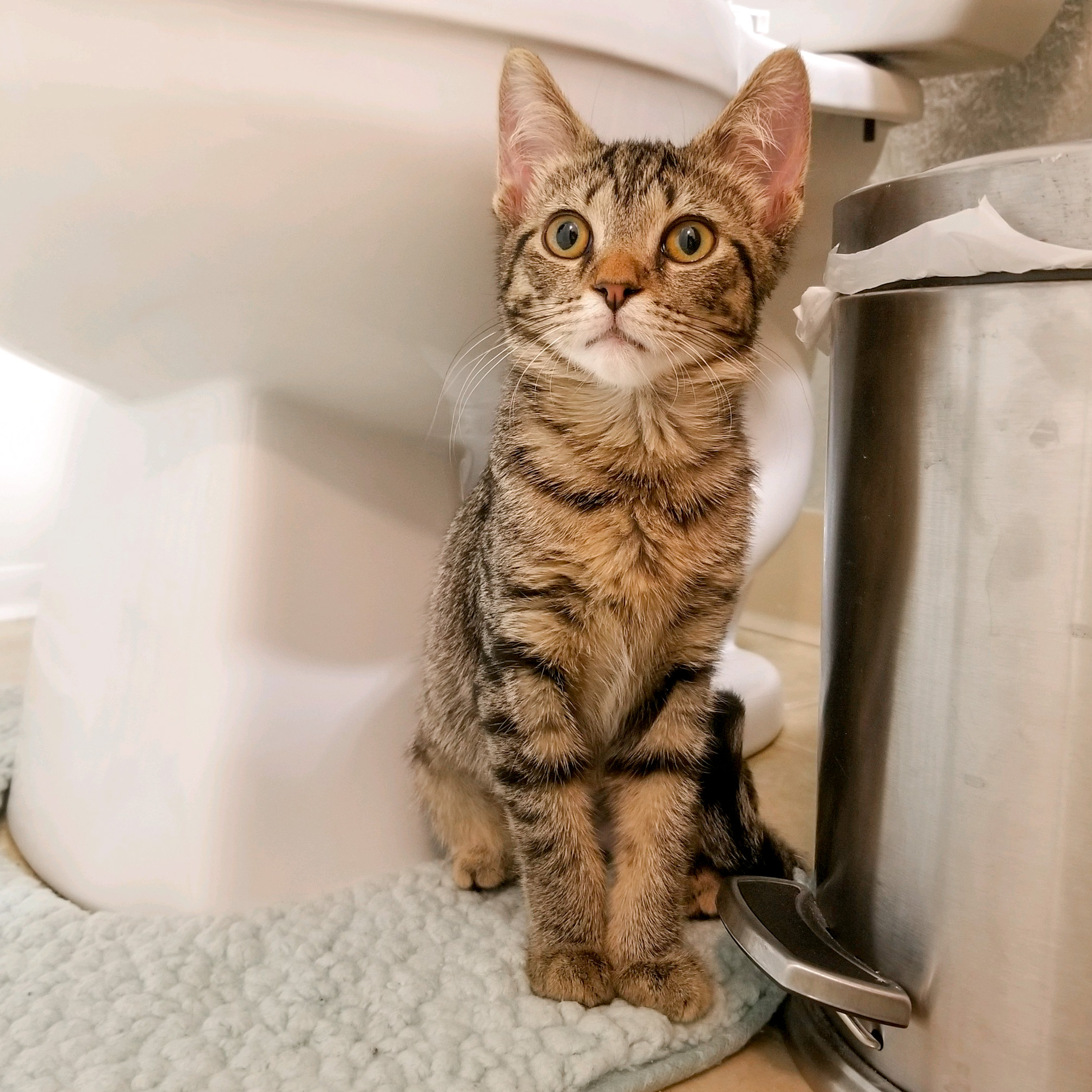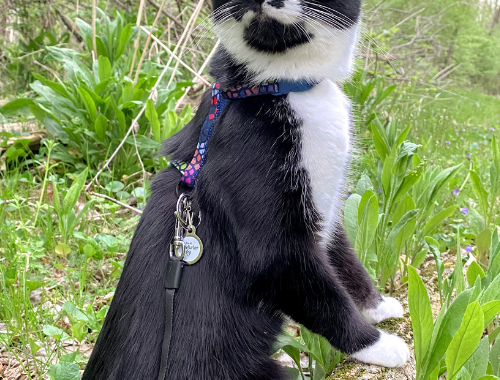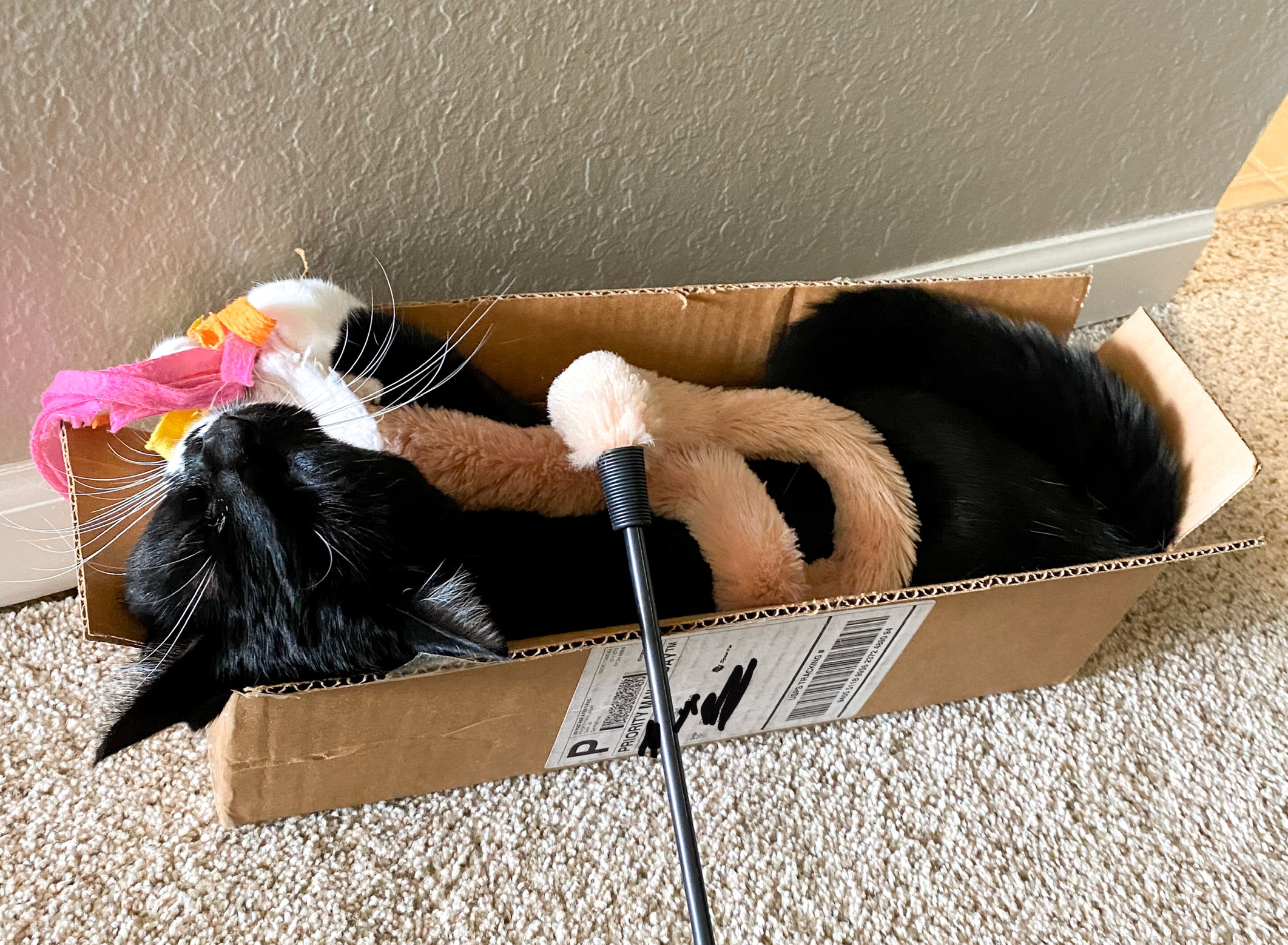
Top 10 Tips To Successfully Kitten Proof Your Home
Why kitten-proof your home?
Kittens are very curious animals and will explore every inch of their new home. To make sure they stay safe, the best thing to do is kitten-proof it before bringing them home. This can help prevent some potentially dangerous encounters with plants, toys, and other things. To do this, we listed out some of the main things to consider when going through your home to make it kitten friendly.
Top 10 tips to Kitten-Proof Your Home:
Kitten proofing can be individualized and not every kitten needs all of these done. We do recommend doing all of these at first, and then you can slowly add things back if your kitten or cat does not show any interest.
-
Set up a designated kitten space for them
- This can include a corner of a room or an entire room. Things to include here can be a cat tree, scratching post, cat bed, blanket, toys, their litterbox, and their food and water bowls. The space should feel welcoming to them and a spot where they can relax. You may also want to include a box or their carrier to give them a place to hide if they want to.
-
Check to make sure your plants are safe
- Kittens/cats chew and eat everything. Many house plants can be toxic to cats. You can check out the Pet Poison Control website to see if the plants you have in your house are safe. There are also multiple apps you can download on your phone to identify plants if you are unsure what you have. When in doubt, get rid of the plant to avoid any accidents occurring.
- We have a post on What Plants To Avoid With Your Cat that includes a list of indoor and outdoor plants to avoid. It also goes over common symptoms your cat may experience if they ate them.
-
Secure cabinets and any other areas you want to keep off-limits to your cat
- Being very curious, cats will try, and often succeed, in opening cabinets. To prevent this, you can try placing something heavier in front of the cabinet or adding child-proof locks on the doors.
-
Store breakable and fragile items in areas your cat cannot reach
- Cats like to paw at things and push them around. That is how they play. But when they knock something made of glass or other breakable material, it can become a problem. Now there is the risk of your cat eating a piece of the item or cutting themselves if trying to play with the smaller pieces. Try to make sure these items are stowed away safely out of your kitten’s reach.
-
Secure any screens or windows
- If you leave your windows open during the day, make sure your screens are very secure. Cats can lay up against them and fall out the windows if you are not careful. Best thing to do is only leave windows open when you are home and can watch your cat, and only on first story floors if possible, to prevent a bad fall from occurring.
-
Keep the toilet lid down
- Many cats and kittens will jump up on the toilet to check it out and maybe even drink from it. This can lead to them falling in and when they are very little, they may have a hard time getting out and can possibly end up drowning. Easiest way to prevent this is to just leave the lid closed whenever it is not being used.
- It is also best to keep the toilet lid down if you use any chemicals for cleaning it, as these are often toxic to cats if they drink the toilet water.
-
Lock up cleaning products, medications, and other chemicals in a safe spot
- Detergents, bleach, paints, pesticides, rat poison, antifreeze, and much more are very dangerous to your cat if ingested. These products should all be stored and locked away in a safe area that your kitten cannot get to at any time.
-
Plastic bags
- While the noise these bags make when your cat is playing with them is fun for them, it can quickly turn to disaster. The plastic can get stuck on them or they can suffocate if they cannot get out of the bag. It is best to not let your cat play with any plastic bags. Cardboard boxes or even paper bags are better. If using paper bags, be sure to cut the handles of the bags off to avoid your cat getting tangled up in those.
-
Electrical cords
- Some cats like to play and bite on cables. Try to keep them as short as possible and behind things that your cat cannot get to. There are coverings you can buy to protect the wires. When chewing on wires that are plugged in, there is a chance your cat can get electrocuted or burn their lips or tongue. Be careful not to just wrap them in anything, as that can be a potential fire hazard. Check with your local hardware store for safe options.
-
String/Ribbon/Rubber bands/Hair or Twist Ties/Sewing Supplies/Any Other Small Items
- These items will be very fun to your kitten, but it is recommended to not let them play with them. It is very easy for your cat to swallow these items, and they can cause serious health risks and possibly require surgery to remove if they get stuck in their digestive tract.
Conclusion:
One thing to note – an absolute kitten-proof home is going to be impossible to achieve. There is always going to be something you forget or something your cat will find or do that you did not predict. Whenever you see them getting into something they should not, always remove the item and secure it away from them to ensure it does not happen again.
Also keep in mind that all cats are different and do not have the same interests. For example, our first cat never chewed on any wires or plants, however our new kitten chews on any wire within reach. But our new kitten does not have much interest in laying in the windows like our first cat did. So kitten/cat proofing the house was different for each of them.
Overall, if you are diligent, watch after your cat, and remove any dangers as they come up, you are doing all the right things to ensure your cat’s safety in your home.
You May Also Like

Adventure Cat 101: What to know before you go
May 8, 2020
DOES MY CAT REALLY NEED TO GO TO THE VET EVERY YEAR?
August 28, 2020


